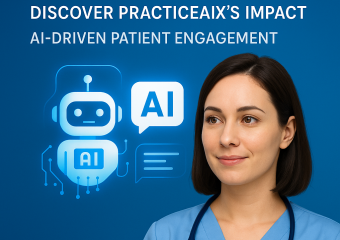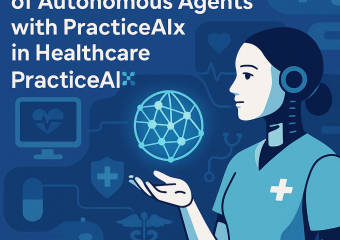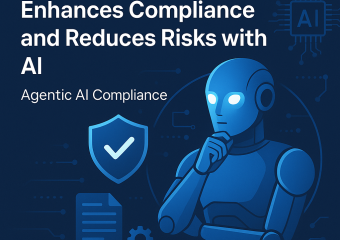Smart Solutions for Allied Health: AI Tools That Empower Therapists and Specialists
In recent years, smart solutions for allied health have gained significant traction, revolutionizing the way therapists and specialists provide care. By integrating artificial intelligence (AI) technologies into everyday clinical practices, healthcare professionals can streamline workflows, enhance patient outcomes, and optimize their time. This article explores the innovative AI tools that are transforming allied health and empowering practitioners to deliver smarter, more effective care.
Understanding Allied Health and the Need for Smart Solutions
Allied health comprises a broad range of professions that support diagnosis, treatment, and prevention of disease and disorders. This includes physical therapists, occupational therapists, speech and language pathologists, dietitians, audiologists, and many others. Despite their crucial roles, allied health professionals often face challenges such as administrative burdens, time constraints, and the need for precise patient monitoring.
Smart solutions leverage AI to address these challenges, transforming data into actionable insights, automating routine tasks, and personalizing care plans based on real-time feedback. As a result, therapists and specialists can focus more on patient interaction and less on administrative duties.
How AI Tools Enhance Allied Health Practices
AI-powered tools in allied health come in various forms, each designed to meet specific clinical needs.
1. Intelligent Patient Assessment and Diagnostics
AI algorithms analyze medical imaging, speech patterns, movement, and other patient data to assist therapists in making accurate diagnoses. For example, speech therapists can use AI-driven voice analysis to detect early signs of communication disorders. Physical therapists benefit from motion-tracking technologies that assess gait abnormalities or range of motion, enabling precise treatment adjustments.
2. Personalized Treatment Plans and Monitoring
AI solutions enable the creation of tailored treatment plans that adapt to patients’ progress. Wearable devices and mobile apps collect continuous health data, which AI interprets to suggest modifications in therapy intensity or techniques. This real-time feedback loop fosters improved patient engagement and outcomes, especially for chronic conditions requiring long-term management.
3. Automation of Administrative Tasks
Administrative responsibilities, including scheduling, documentation, and billing, consume a substantial portion of a healthcare provider’s time. AI-driven practice management software automates these processes, reducing errors and freeing up therapists to dedicate more time to patient care. Speech-to-text applications also expedite clinical note documentation, making record-keeping more efficient.
Key AI-Powered Technologies Transforming Allied Health
Several emerging AI technologies stand out for their impact on allied health services:
- Natural Language Processing (NLP): Facilitates faster documentation and enables analysis of patient communication for behavioral health and speech therapy.
- Computer Vision: Applied in analyzing patient movements and assisting with rehabilitation exercises through video and sensor data.
- Machine Learning: Provides predictive analytics that anticipate patient needs or potential complications, aiding early interventions.
- Virtual Assistants and Chatbots: Enhance patient engagement by answering common questions and providing therapy reminders outside clinical hours.
Benefits of Implementing AI in Allied Health
The adoption of AI tools offers numerous advantages:
- Improved Accuracy and Consistency: AI reduces human errors in assessment and treatment recommendations.
- Enhanced Patient Engagement: Interactive tools and timely feedback motivate patients to adhere to therapy regimes.
- Optimized Resource Utilization: Automation decreases the time spent on paperwork, enabling higher patient caseloads without compromising care quality.
- Data-Driven Insights: AI uncovers trends and patterns that might elude human observation, influencing better clinical decisions.
Challenges and Ethical Considerations
While AI brings promising benefits, allied health professionals must also navigate potential challenges such as data privacy, ethical use of AI recommendations, and the need for adequate training to effectively utilize these tools. Ensuring that AI augments rather than replaces human judgment remains a priority.
Looking Forward: The Future of AI in Allied Health
As AI technologies continue to advance, their integration into allied health will deepen. We can anticipate smarter diagnostics, increasingly sophisticated patient monitoring systems, and further automation that enhances clinical workflows. Collaboration between healthcare professionals, technologists, and policymakers will be essential to harness these innovations responsibly.
Conclusion
Smart solutions for allied health, powered by AI tools, are empowering therapists and specialists to elevate patient care delivery. By improving diagnostics, personalizing treatments, and streamlining administrative tasks, these technologies are reshaping the landscape of allied health professions. Embracing these advancements offers a pathway to more efficient, effective, and patient-centered healthcare in the years to come.








